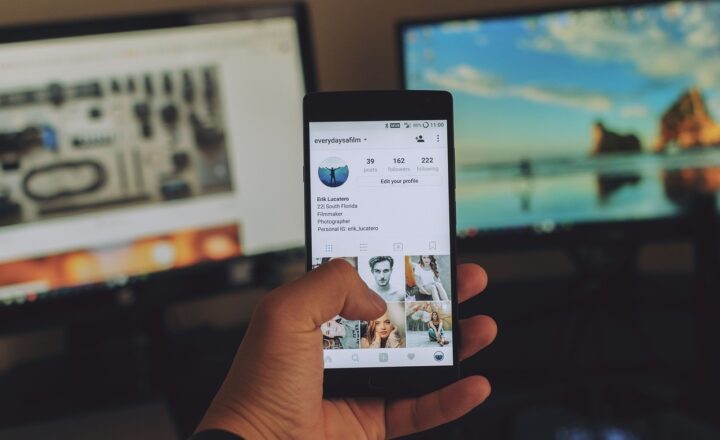How Social Media Influencers Are Changing the Way We See Ourselves
November 10, 2024

In today’s digital landscape, social media influencers have risen from virtual obscurity to become some of the most powerful voices shaping our thoughts, perceptions, and self-images. Popular platforms such as Instagram, TikTok, and YouTube have given rise to a new breed of celebrity who is not only marketing products but also influencing how we perceive beauty, success, and lifestyle goals.
1. The Rise of Social Media Influencers
Social media influencers are individuals who have amassed a significant following on social media and have the ability to sway the opinions and behaviors of their audience. Unlike traditional celebrities, influencers tend to foster personal connections with their followers, which enhances their credibility and relatability. Platforms like Instagram and TikTok have become primary venues where influencers share their lives, opinions, and recommendations.
The trajectory of influencer culture is reflected in the staggering statistics: as of 2023, over 50 million people worldwide identify as influencers, and brands are expected to allocate upwards of $15 billion to influencer marketing in the next year alone. This transformation has not only changed marketing strategies but has also altered deep societal norms surrounding self-image and behaviors.
2. The Role of Influencers in Shaping Self-Perception
Influencers significantly impact how we view ourselves through various ways:
- Beauty Standards: Influencers often set the bar for beauty trends and expectations, promoting specific looks or lifestyles that their followers aspire to achieve. The continual presentation of idealized self-image can lead to a sense of inadequacy for many, particularly young users who are still developing their self-identity.
- Lifestyle Aspirations: Influencers frequently showcase a lifestyle filled with luxury, adventure, and apparent happiness. This can create an unrealistic perception of success, where followers feel pressured to emulate such lifestyles, sometimes leading to dissatisfaction with their own lives if they fall short of these portrayed ideals.
- Mental Health Dialogues: Some influencers play a key role in advocating mental health, addressing body image issues, and promoting self-acceptance. This awareness can be a double-edged sword, as it helps combat negative perceptions while also risking the trivialization of genuine struggles if not handled with care.
Ultimately, influencers have the power to either uplift or distort perceptions about our selves.
3. The Pressure to Perform and Conform
With the mantra of “content is king,” influencers constantly feel the need to produce visually appealing and engaging content. This pressure often translates into a lifestyle that prioritizes aesthetics over authenticity, pushing some to modify their appearances through cosmetic procedures or photo editing.
For followers, this can create an impossible standard—one where they feel compelled to alter their lives to be hashtag-worthy or performative.
The prevalence of filters and editing apps can further exacerbate this perception. Seeing curated content that features seemingly perfect lives may lead individuals to believe that everyone else is living a fairy tale, resulting in cognitive dissonance when comparing real lives to these idealized versions.
4. Authenticity vs. Marketing: A Fine Line
As brands integrate influencers into their marketing strategies, the line between authenticity and advertising becomes increasingly blurred.
While some influencers maintain transparency with their audience about sponsored content, others fall into the trap of promoting products without genuine belief in them, creating mistrust among followers.
Consumers today are becoming savvier and demand authenticity. Influencers who are open about their struggles and present real-life scenarios often resonate more profoundly with their audience, fostering loyalty and a sense of community.
Conversely, those who create an illusion of perfection may ultimately alienate their followers, leading to backlash and a decline in credibility.
5. The Impact on Youth Culture
The growing influence of social media celebrities on younger audiences cannot be overlooked. Teenagers and young adults are particularly susceptible, often idolizing influencers as role models. According to surveys, a significant percentage of young individuals view influencers as more relatable than traditional celebrities.
This shift has resulted in changing values around beauty, success, and community:
- Shifting Values: Social media has encouraged youth to embrace entrepreneurship and personal branding, often viewing followers as a measure of success. Young people are increasingly pursuing careers as influencers, believing they can achieve fame and fortune through social media popularity.
- Consumerism: Influencers play a pivotal role in promoting products, with many young followers associating worth with material goods endorsed by their favorite personalities.
- Body Image Challenges: The impact on body image cannot be understated, as social media exposure often leads to unrealistic beauty ideals, triggering mental health issues such as anxiety and depression in susceptible individuals.
The relationship between social media influencers and youth culture is complex, necessitating vigilance from both influencers and their audiences.
6. Navigating the Digital Landscape Responsibly
For influencers and their followers alike, fostering a healthier relationship with social media is crucial. Here are some strategies for navigating this environment responsibly:
- Emphasize Authenticity: Influencers should strive to share genuine moments and reflect real experiences rather than curated perfection. Followers should critically assess the content they consume and seek relatable figures who promote positivity without the gloss.
- Promote Body Positivity: Advocates within the influencer community can create campaigns that focus on diverse body types and celebrate self-acceptance, thereby diminishing negative body image perceptions.
- Encourage Mindful Consumption: Followers should practice mindful consumption, examining how content affects their moods and self-perception. Taking frequent breaks from social media can also reduce the impact of unrealistic standards.
By consciously engaging with social media, both influencers and followers can create healthier narratives around self-image.
Conclusion
Social media influencers are dramatically reshaping our perceptions of self-worth, beauty, and success in today’s digital age. While they have the potential to promote positivity and authenticity, they can also pave the way for unrealistic standards and futile aspirations that often lead to mental health issues among followers. Navigating this space requires responsibility from both influencers and their audiences, prioritizing authenticity, self-acceptance, and mindfulness in the consumption of digital content.
In the end, the ability to discern between authenticity and illusion in the digital realm is vital for maintaining healthy self-perceptions and fostering meaningful connections both online and offline.







